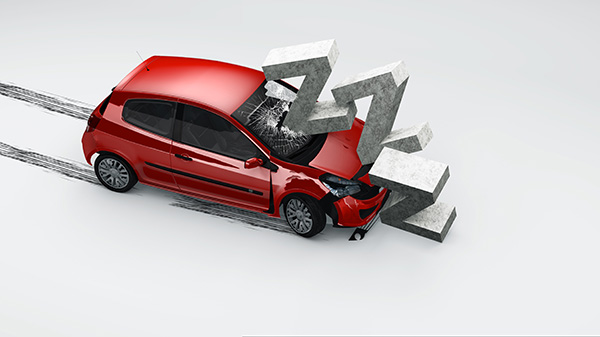
Driving is something most of us do every day without giving it much thought. But what if you found out that missing just a few hours of sleep could turn your routine drive into a risky adventure? The effects of sleep deprivation on driving are more severe than many people realize. It's not just about feeling a little drowsy behind the wheel—sleep deprivation can impair your driving as severely as alcohol. We will explain how lack of sleep affects your ability to drive and why it's crucial to prioritize rest before hitting the road.
The Impact of Sleep Deprivation on Reaction Time
One of the most immediate and dangerous effects of sleep deprivation is slowed reaction time. When you're sleep-deprived, your brain struggles to process information quickly. This means that the time it takes for you to respond to sudden changes in traffic, such as a car stopping abruptly or a pedestrian crossing the road, is significantly delayed. In driving, where every second counts, this delay can be the difference between avoiding an accident and becoming part of one.
When you're operating on minimal sleep, your cognitive functions take a hit. This isn't just about being groggy; it's about your brain not firing on all cylinders. Studies have shown that being awake for 18 hours straight impairs your reaction time and motor skills as much as having a blood alcohol concentration (BAC) of 0.05%. If you've been awake for 24 hours, your impairment is equivalent to a BAC of 0.10%—that's above the legal limit for driving in most countries. So, before you decide to power through your fatigue, remember that sleep deprivation can turn your car into a potential weapon.
More Than Just Feeling Tired
Sleep deprivation doesn't just make you feel tired—it actually diminishes your cognitive abilities. This includes your attention span, memory, and decision-making skills. When you're sleep-deprived, you're more likely to miss crucial road signs, misjudge distances, and make poor decisions, such as running a red light or speeding through a yellow one.
Think about the last time you were overly tired. Did you find it harder to focus on tasks or remember details? Now, imagine that same level of impairment while you're driving. You might not notice the car ahead slowing down, or you might take a turn too sharply because your brain isn't processing spatial relationships properly. Sleep deprivation can lead to "microsleeps," brief moments of sleep that last just a few seconds. These can occur without you even realizing it, which is terrifying when you're behind the wheel.
The Link Between Sleep Deprivation and Mood
Lack of sleep doesn't just affect your physical and cognitive performance; it also impacts your mood. Sleep deprivation can make you irritable, anxious, and more prone to road rage. When you're tired, you're less patient, more easily frustrated, and more likely to make aggressive driving decisions. This combination of impaired judgment and heightened emotions is a recipe for disaster on the road.
Have you ever found yourself getting irrationally angry at another driver for a minor mistake? Sleep deprivation lowers your ability to manage stress and control your emotions. You might react to a situation more aggressively than you would if you were well-rested, increasing your risk of engaging in dangerous driving behaviors, such as tailgating, weaving through traffic, or speeding.
Long-Term Effects of Sleep Deprivation on Driving Ability
Consistent sleep deprivation has long-term effects on your overall health, which, in turn, affects your driving. Chronic sleep deprivation can lead to conditions such as high blood pressure, diabetes, and obesity, all of which can impair your ability to drive safely. Additionally, long-term sleep deprivation can lead to more frequent and severe lapses in attention and memory, making you a less reliable driver.
Chronic fatigue can also cause you to develop unhealthy coping mechanisms, like consuming excessive caffeine or energy drinks to stay awake. While these might give you a temporary boost, they can't substitute for real rest and may lead to erratic energy levels and crashes, both figuratively and literally.
Drowsy Driving
Drowsy driving is often overlooked as a serious issue, but it's a silent killer on the roads. The National Highway Traffic Safety Administration (NHTSA) estimates that drowsy driving is responsible for over 100,000 crashes each year in the United States alone, resulting in approximately 1,500 deaths. These numbers are likely underreported, as it's difficult to determine whether sleep deprivation was a factor in many accidents.
Drowsy driving is particularly dangerous because, unlike drunk driving, it's harder to detect. There's no breathalyzer for fatigue, and many drivers don't realize just how impaired they are until it's too late. They might believe they can "power through" their tiredness, but the truth is that no one is immune to the effects of sleep deprivation.
Feeling fatigued? Your car might be, too! Bring it to Carmasters Automotive for a thorough maintenance check. Let us help you stay safe on the road with a vehicle you can rely on.